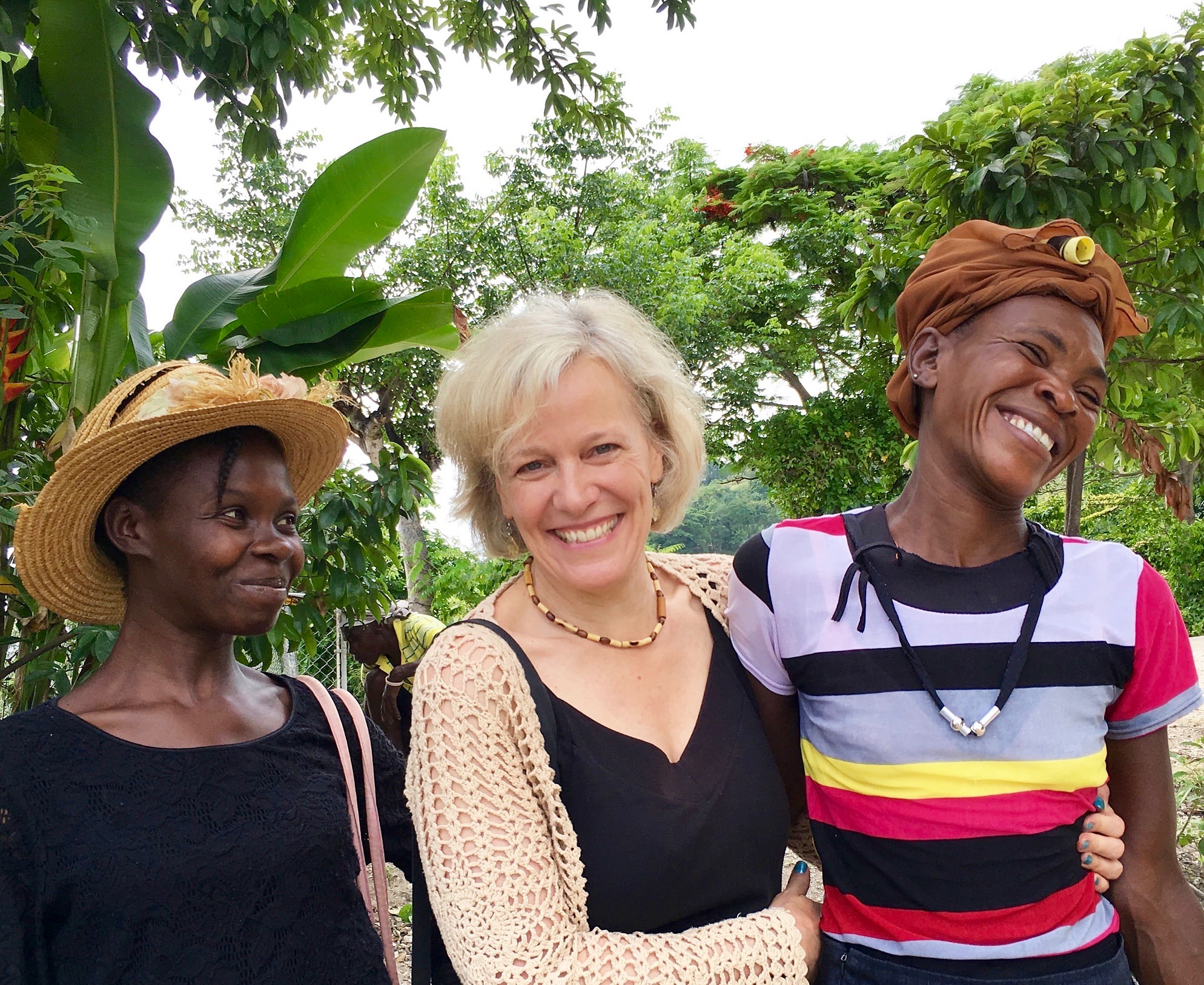
Many people in our network in the US and Haiti are familiar with our friend and colleague, Jayne Engle. Jayne came to Haiti initially through her brother, HP co-founder, John Engle. But her connection to Haiti has grown much deeper over the years to the point where I can seldom visit Bawosya – where the Children’s Academy is located – without people approaching me on the street to ask about her. “How’s Jaynee?; When’s she coming to visit again?; Make sure to say ‘Hi’ for me!”
Jayne has gotten to know the community in Bawosya very well. Since 2011 she has been visiting to spend time and learn about the community and to conduct research. In contrast to common notions of academic research being a dry, solitary activity, Jayne’s research has relied on qualitative, participatory techniques which are engaging and interactive, including activities like social mapping, household interviews, a community walking tour designed by participants, open discussions about locally relevant topics, and even a long walk to the open air market up the hill at Greffen. In this way, Jayne has learned a great deal about Bawosya and become endeared to its residents.
Jayne also did research in the community of Santo in Leogane where HP conducted a major capacity building project for Habitat for Humanity. “The Good Neighbor Project” aimed to help the Santo community – which was newly founded after the earthquake – to collaborate effectively and work together toward independence and self governance.
Jayne’s research recently hit a milestone when she completed and successfully defended her PhD dissertation at McGill University in Montreal, Canada. The title is: Stories of Tragedy, Trust and Transformation? Learning from participatory community development experience in post-earthquake Haiti.
Carrying out this research has been about bridging highly localized change efforts with a vision for broader structural transformation. It has been deeply meaningful to me and also revealing for change possibilities in Haiti. It was a privilege to be accepted and trusted by community members well enough to hear their stories and understand the nature of their struggles and aspirations. And the efforts of residents, Haiti Partners, and other collaborators are remarkable — they combine a human- and education-centered approach to community development that represents a pathway to transformative change not only in Bawosya, but for broader development in Haiti. This is the kind of effort that needs to be not only supported and scaled, but also evaluated regularly so that we can gauge progress and social impact and modify ways of working and investments as appropriate over time. Sustaining and scaling this kind of community-based participatory development work that takes a long-term perspective represents one of the best possibilities for transformation I’ve encountered in Haiti. – Jayne Engle, September 2016
On behalf of the people we work with in Haiti as well as our team here in the US, we’d like to extend our warmest congratulations to Jayne on this major accomplishment. We’re so grateful that Jayne has made our work a centerpiece of her research, and we look forward to continuing to work together for years to come.
We encourage you to learn more about Jayne’s compelling research. To do so, you can view the short video below, read the abstract for her dissertation, view her Theory of Change diagrams, or view/download her complete thesis here.